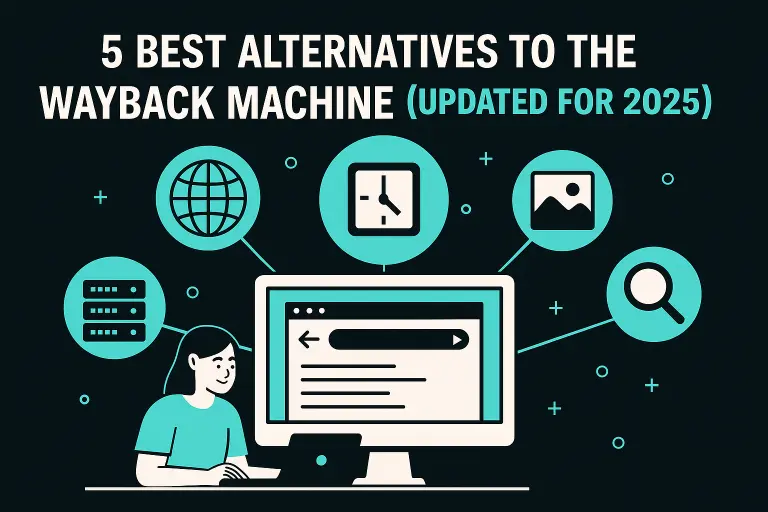Introduction
The Wayback Machine, part of the Internet Archive, remains one of the most recognized web archiving tools—offering access to billions of archived web pages dating back decades. It’s invaluable for seeing how websites looked in the past, retrieving lost content, or conducting digital comparisons.
However, it has its limitations. It doesn’t offer on-demand captures, automation, or features designed for legal compliance—areas where modern users may require more specialized tools.
In this guide, we dive into five powerful alternatives that cater to different needs—whether you’re a marketer, researcher, journalist, or compliance officer.
1. Archive.today (Archive.is)
Overview
Archive.today allows users to manually capture and preserve web pages instantly, saving a stable snapshot. It supports JavaScript-heavy sites (like Google Maps or Twitter), offering both a visual and static HTML version.
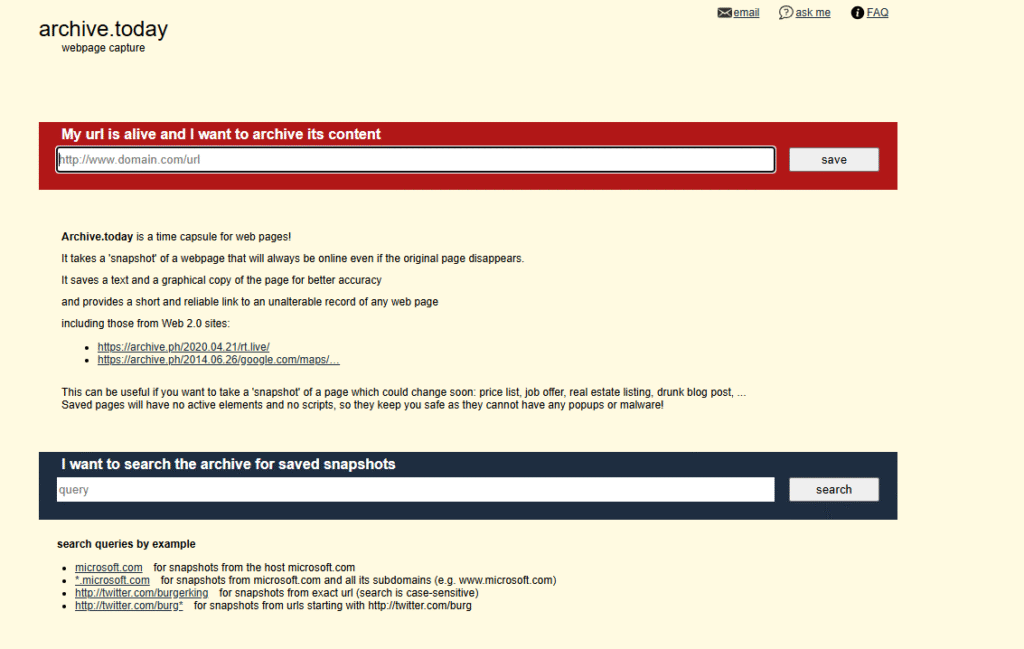
Strengths
- Immediate on-demand archiving—no need to wait for crawlers.
- Captures interactive elements and layout faithfully.
- Generates permanent, short URLs and requires no registration.
Caveats
- Only archives what you manually submit—no automated capture.
- Some users report it’s not ideal for archiving entire websites with many pages.
Ideal For
Quick snapshots for competitors’ pages, urgent research, or content preservation before edits happen.
2. Perma.cc
Overview
Developed by Harvard’s Library Innovation Lab, Perma.cc is designed to solve “link rot” by offering permanent, reliable links for academic and legal citations.

Strengths
- Ensures long-term access via stable links.
- Supports metadata and private/public organization projects—great for institutions.
- Provides a WACZ file and screenshot with each save.
Caveats
- Requires an account; free plans are limited (previously 10 saves/month, now more restricted).
- Mainly focuses on individual page archiving—not site-wide.
Ideal For
Academia, legal professionals, or anyone needing robust citation integrity.
3. Memento Time Travel
Overview
Memento doesn’t archive pages itself—rather, it’s a time-travel search engine. It queries multiple archives like Wayback, Archive.today, WebCite, and retrieves historical versions from across platforms.
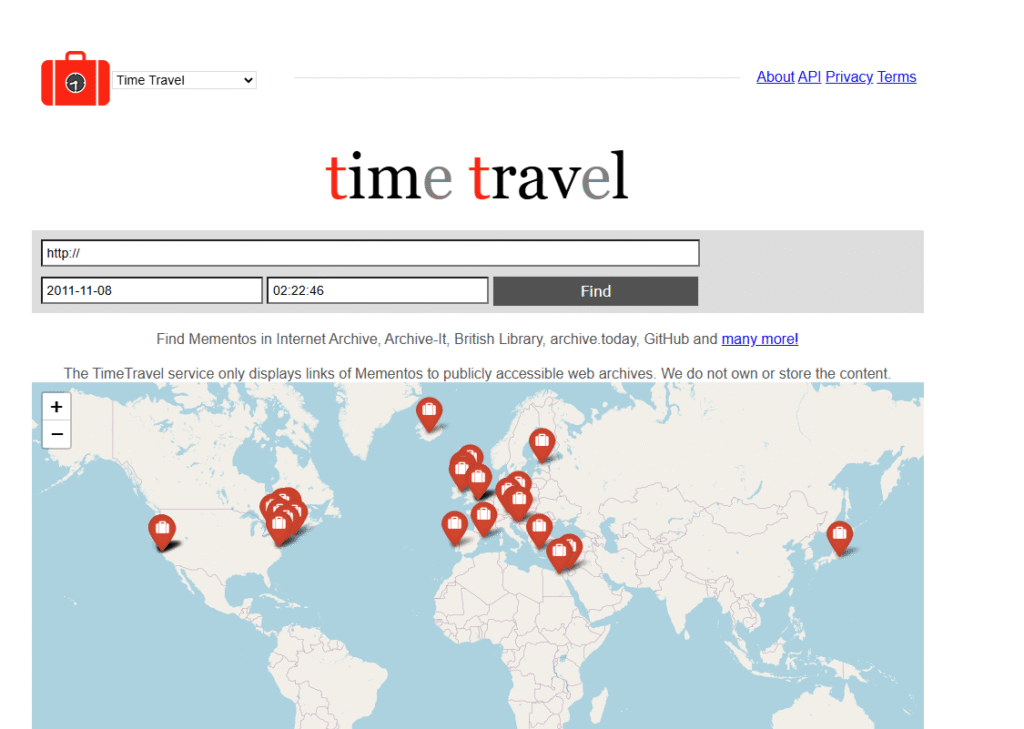
Strengths
- Bridges multiple archives from one interface.
- Shows versions across time—even when one archive lacks capture.
- Free and accessible to all users.
Caveats
- Doesn’t create new archives—only finds existing ones.
Ideal For
Digital archivists, historians, or SEOs looking for the most comprehensive historical snapshot.
4. Stillio
Overview
Stillio excels at automatic, scheduled screenshots. It lets users define the capture frequency—daily, weekly, or custom intervals—and preserves visual change history over time.
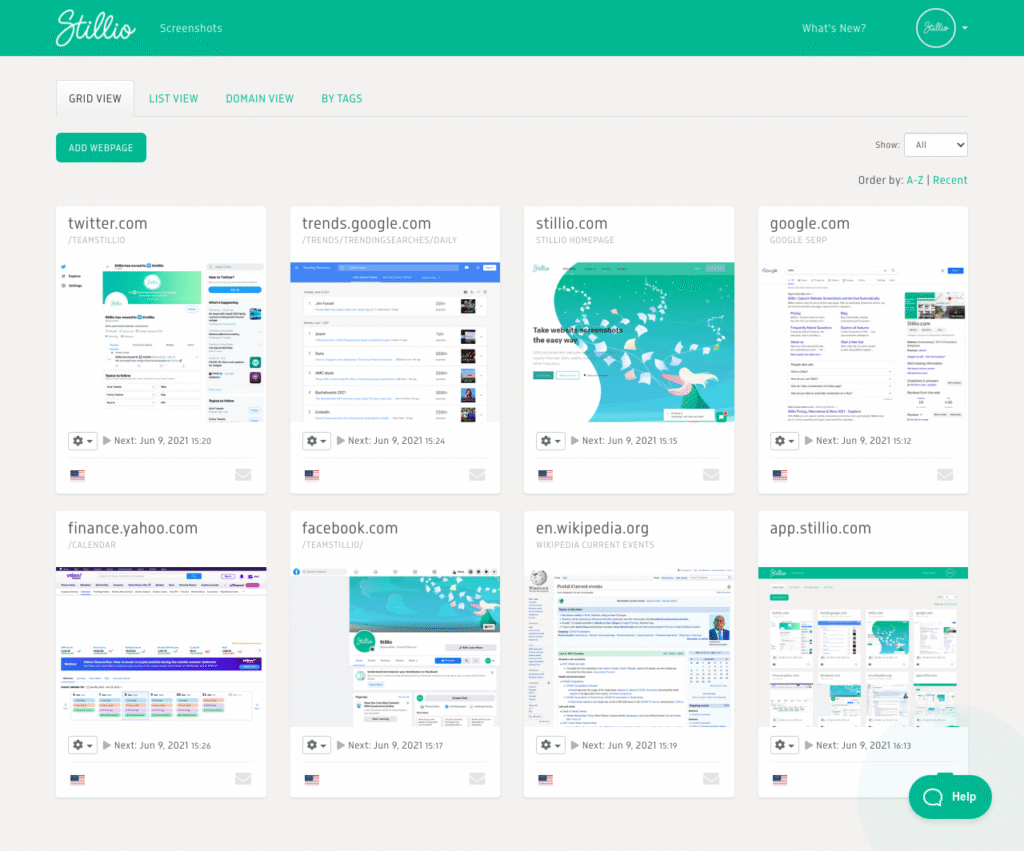
Strengths
- Fully automated workflow—no manual steps once set up.
- Stores captures in searchable, tagged formats.
- Reliable for monitoring client or competitor websites visually over time
Caveats
- Paid service—free alternatives like Wayback don’t offer automation.
- Visual only; not for crawling whole site structure.
Ideal For
Digital agencies, marketers, or compliance teams tracking web content visually.
5. PageFreezer
Overview
PageFreezer is a premium-level archiving platform tailored for legal and regulatory compliance. It archives websites, social media, and even messaging platforms, with audit trails and full-text search—and ensures that every archive is legally defensible.
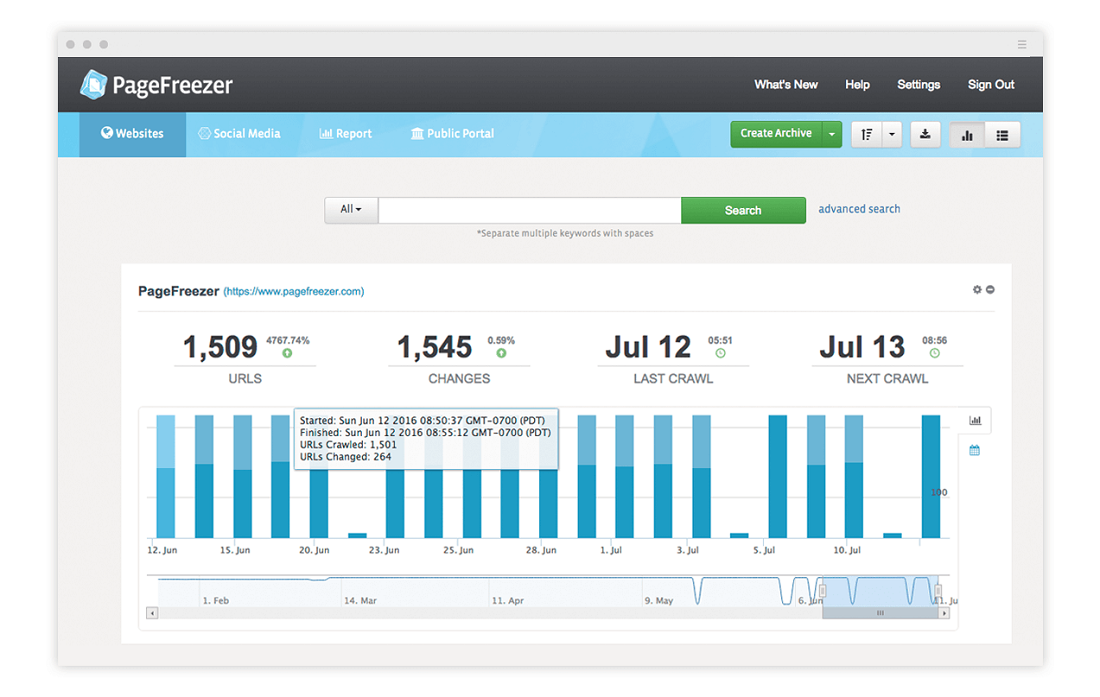
Strengths
- Real-time, automated capture for multiple platforms.
- Compliant with legal standards, reviewable in court.
- Secure storage and advanced search functions.
Caveats
- Subscription-based; pricing starts around $99/month.
- Overkill for casual users.
Ideal For
Regulated industries (finance, healthcare), corporations needing audited digital records.
| Tool | Mode | Snapshot Type | Deep Coverage | Best For |
|---|---|---|---|---|
| Archive.today | Manual | Visual + HTML | Page only | Quick, one-off snapshots |
| Perma.cc | Manual (account) | Screenshot + WACZ | Page only | Academic & legal citation safety |
| Memento | Aggregator | Finds across archives | Variable | Comprehensive historical search |
| Stillio | Scheduled automation | Screenshots | Page only | Visual tracking & monitoring |
| PageFreezer | Continuous automation | Full site/service archive | Deep | Legal/compliance archiving |
Recommended Workflow for SEO & Marketing Teams
For optimal results, combine tools based on your monthly needs:
- Archive urgent pages: Use Archive.today when you spot valuable or at-risk content you want to preserve immediately.
- Ensure citation integrity: Save official or legal documents using Perma.cc.
- Opportunity discovery: If you’re unsure where snapshots might exist, use Memento to locate them broadly.
- Track visual changes: Enable Stillio to auto-capture competitor or client pages over time for trend analysis or reporting.
- Maintain compliance: Use PageFreezer to store legally-binding versions of your important online content.
Conclusion
While the Wayback Machine remains a cornerstone for web history, modern needs often call for more precision, automation, or legal reliability.
- Archive.today gives you on-demand captures.
- Perma.cc ensures long-term citation safety.
- Memento aggregates archival footprints.
- Stillio automates visual tracking.
- PageFreezer secures compliance-grade evidence.
By layering these tools into your content strategy, you safeguard your access to historical web content—no matter how fleeting or critical it is.


